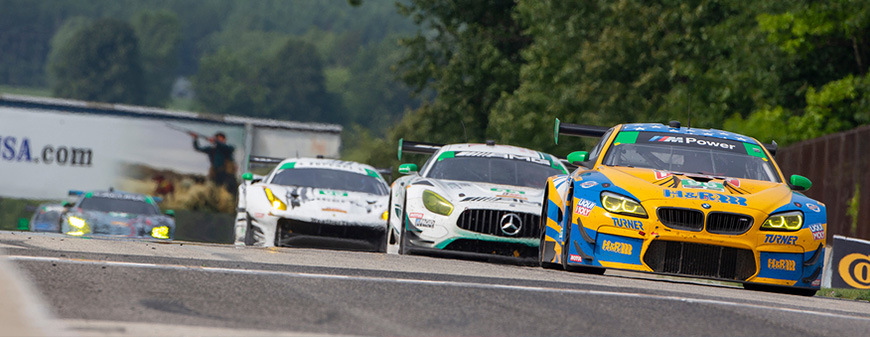TWS is a Great Training Option for Everyone
Learn more about how we can prepare you to advance your career.
Are you a fan of motorsports like NASCAR, off-roading and monster trucks? Ever consider turning your fascination into a full-time job?
It’s a possibility after you finish welding school.
You’ve probably heard racecar drivers yell, “Drive fast, turn left,” at the tracks. But motorsports fabricators have their own motto: “Drive fast, weld right.”
That’s because welding plays a huge role in everything from building racecars and trucks to repairing them after high-speed crashes.[1]
Have You Considered a Career in the Skilled Trades?
Fill out the form to recieve a no obligation info packet.
Where Could You Work as a Motorsports Fabricator?
Whether the vehicles are zooming along racetracks, climbing sand dunes or crushing smaller cars, they need to be strong and safe, and that’s where metal fabricators come in.
Check out the many motorsports where they ply their trade.
NASCAR
Welders fuse the strong joints for the spoilers, the chassis, the rear end housings connecting the upper and lower control arms and the seat brackets. Nearly everyone who works in the fabrication shop needs to know how to weld, and some even get to travel with the pit crews to NASCAR races across the country.[2]
Off-Roading
ATVs, Jeeps, UTVs, snowmobiles, dirt bikes and 4×4 trucks wouldn’t be possible without welding.[3] In fact, off-roaders often take their welders and welding wire along with them—because who wants to spend the night with their bike broken down in the mud?[4]
Rally and Drift Cars
The niche market of rally and drift car racing and high-end hot rods requires special fabrication skills and equipment. Sometimes equipment is even custom-made to modify or fabricate parts from scratch. One company, Streetwise, designed and welded its own machine to automate the labor-intensive task of shaving tires.[5]
IndyCar
Quality, safety and dependability are crucial for Indy cars.[6] That’s one reason why crews aren’t permitted to weld in their own garages at the Indianapolis Motor Speedway. They can either have a small, mobile booth in their fleet of trailers, or they can weld indoors at the Indiana Oxygen garage. Such quality control has paid off, too. Faulty welding has never been the cause of a racing accident.[7]
Vintage Sport Cars
With its rich and storied history, car racing is the perfect motorsports field for the artistic welder. The horse tracks of county fairs before World War I were the location of some of the earliest events. Today, creative metal workers restore vintage vehicles into impressive show cars.[8]
Monster Trucks
Standing more than 10 feet tall and weighing 12,000 pounds, BIGFOOT and other monster trucks split eardrums as they pummel every obstacle in their path. Everything on this beast is custom-made:
- The four-link racing suspension with four main bars that connect the rear and front axles to the frame
- The blower that forces fuel and air into the engine to generate 1,500 horsepower
- The 645-pound wheels with the 66 inch by 43 inch BKT tires[9]
And guess who the real heroes are of Monster Jam? The technicians. They work behind the scenes of these metal extravaganzas welding, fabricating and maintaining the engines.[10]
What Types of Welding Are Used in Motorsports?

Getting excited about the possibility of a career fusing the metal on high-octane, tricked-out racecars and trucks? The good news is you’re already learning two of the welding processes motorsports fabricators rely on to get the job done right each and every time: gas tungsten arc welding (GTAW) and gas metal arc welding (GMAW).
Most racing fabrication shops employ both of these processes on a regular basis. While GTAW, or TIG, can take longer, it produces higher-quality welds with better tolerances and fewer distortions.
Since it can be fully or semi-automated, GMAW, or MIG, can be faster.
Which process motorsports fabricators choose depends on the part. MIG is typically employed to hang the sheet metal on bodies, and TIG is the go-to process for chassis work.
Motorsports fabricators also use a host of tools:
- Snips
- Pneumatic tools
- Adhesives
- Angle grinders
- Deburring knives
- Fasteners
- Lasers
- Abrasives
- Cutting tools
- Drill bits
- CNC equipment
- Shears
- Drills
- Saws
- Nuts and bolts[11]
Take Your Skills to the Racetracks
Welding training is a great place to learn some of the main processes motorsports fabricators use: MIG and TIG welding. You’ll also pick up welding safety practices and several other useful techniques you can take with you to the racetracks after graduation.
As with other specialized welding fields, advanced training may be necessary to land that dream job.
Check out other fields where you could work as a welder in Where Could a Welding Job Take You?
[1] https://www.thefabricator.com/article/arcwelding/drive-fast-weld-right
[2] https://www.thefabricator.com/article/arcwelding/drive-fast-weld-right
[3] https://www.lincolnelectric.com/en-us/sports/offroad/Pages/offroad.aspx
[4] http://www.fourwheeler.com/how-to/131-1104-portable-welder-shootout-premier-power-welder/
[5] https://www.millerwelds.com/resources/article-library/mig-tig-welding-equipment-helps-fabricate-rally-and-drift-cars
[6] https://www.lincolnelectric.com/en-us/sports/indycar/Pages/indycar.aspx
[7] https://www.weldingsuppliesfromioc.com/blog/welding-at-the-indy-500/
[8] https://www.thefabricator.com/article/arcwelding/where-the-rubber–meets-the-road
[9] https://www.thefabricator.com/article/tubepipefabrication/the-anatomy-of-a-monster-truck
[10] https://www.monsterjam.com/en-US/monster-jam-101-2
[11] https://www.thefabricator.com/article/arcwelding/drive-fast-weld-right
This blog has been labeled as archived as it may no longer contain the most up-to-date data. For a list of all current blog posts, please visit our blog homepage at https://www.tws.edu/blog/







